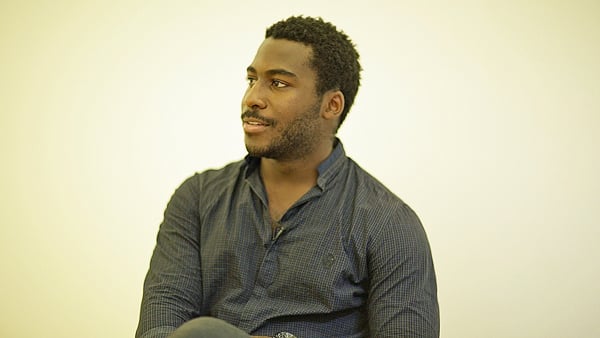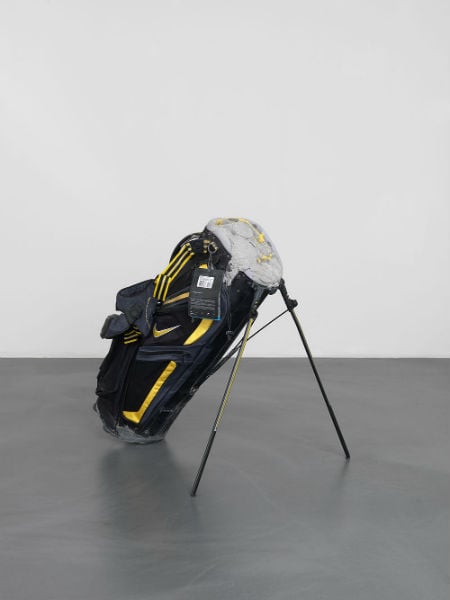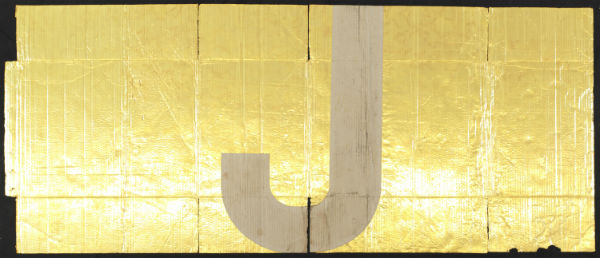Art & Exhibitions
Mega-Rich Nigerian Ex-General’s Son Makes Art World Splash
The young collector has gathered over 400 pieces in less than seven years.

The young collector has gathered over 400 pieces in less than seven years.

Coline Milliard

Theo Danjuma laughs as he recalls first encountering the work of Matias Faldbakken at a friend’s house in Berlin. The piece he saw involved bits of tape stuck directly onto the wall. “It was one of those; I was so freaked out,” the 28-year-old collector says when we meet at Electric House, minutes from his Notting Hill home. “At the time, it was such a shock, I had no way of comprehending [it].”
This was only a few years ago, but Danjuma is a quick learner. Today, he describes the Norwegian artist—and his conceptually-driven assemblages of everyday objects—as making up “a big part” of his collection, which also features works by the likes of Jordan Wolfson, Cory Arcangel, Jason Rhoades, and Danh Vō. Hooked on contemporary art since the purchase of a Julie Mehretu work on paper in 2008, Danjuma has embraced art collecting with gusto. To date, he’s bought over 400 works, some of which will be shown in the exhibition “One Man’s Trash (Is Another Man’s Treasure),” which opens at 33 Fitzroy Square in London on October 6.

Matias Faldbakken, Untitled (Golf Bag), (2011)
Courtesy Danjuma Collection
In many ways, the exhibition is only the tip of the iceberg. Danjuma has more ambitious plans—and the family connections to make them happen. His father, the retired Nigerian Lt. Gen. Theophilus Yakubu Danjuma, is Africa’s 29th richest man, according to Forbes. His fortune is estimated at $700 million. Nigeria’s Chief of Army Staff in the 1970s, Danjuma senior has been described as a confidant of the late dictator Sani Abacha, whose regime, again according to Forbes, awarded him an oil block in the Niger Delta. A lucrative deal with the Chinese company CNOOC in 2006 made the former general a reported $500 million profit—$100 million of which was redirected to the TY Danjuma Foundation. The business is now varied, encompassing not only oil but also shipping and real estate.
So far, the family’s philanthropic activities have been mainly focused on health, employment, and education. But through Danjuma junior’s influence, it’s increasingly involved in the visual arts too. A hotel owned by the family in Lagos is currently being extended. And the budding collector has asked for an extra wing to be added for art. The elegant rectangular space—built on stilts as not to encroach on the hotel’s parking lot—will showcase the rapidly-expanding Danjuma Collection.
Danjuma’s project is one within a general trend that has seen African collectors and artists—and more generally West African countries—more visible on the global contemporary art stage. That’s taking place abroad as well as at home. In an email to artnet News, independent curator Bisi Silva—the founding director of CCA Lagos and curatorial advisor to London’s art gallery Tiwani Contemporary—described the art scene in the Nigerian capital as having “grown exponentially.” “Lagos [is] an important space to watch,” she added, while admitting that she worries about “the lack of critical discourse” locally. Still, last year, the first contemporary art museum in sub-Saharan Africa outside of South Africa opened in Benin. And it’s expected to welcome over 4 million visitors in the next few years.

Danh Vo, Alphabet (J), (2011)
Courtesy Danjuma Collection
Despite this growing interest, Danjuma is pretty pessimistic about the local reception his initiative will get. “I think generally people won’t really like it,” he told artnet News. “The audience is so, like, not there in terms of what they expect from art. They don’t want to be challenged in any way, they don’t really want to have anything that’s difficult.” But he’s not letting these considerations—or the Islamist extremism plaguing the north of the country—dampen his enthusiasm, and plans to invite artists for short stays in Lagos, encouraging them to meet young artists studying at the city’s art schools.
Indeed, while the young collector modestly declines to use the word “nurture” when talking about what he would like to set up for emerging artists locally, it seems that encouraging talent is well on the agenda. He hopes that artists and students will benefit from seeing international contemporary art in his shows. And beyond the gallery itself, Danjuma envisages teaming up with graduates from a local art school and set up studios spaces to create “some sort of a community,” where artists could exchange ideas about their work, and support each other. “That’s definitely not happening [currently] in Lagos,” he says, “and I think it would be very nice if it did.”
Silva, who learnt about Danjuma’s plans when contacted by artnet News, welcomed the project warmly. “More of these kind of initiatives are needed,” she commented, “not only in Nigeria but also across the continent.”